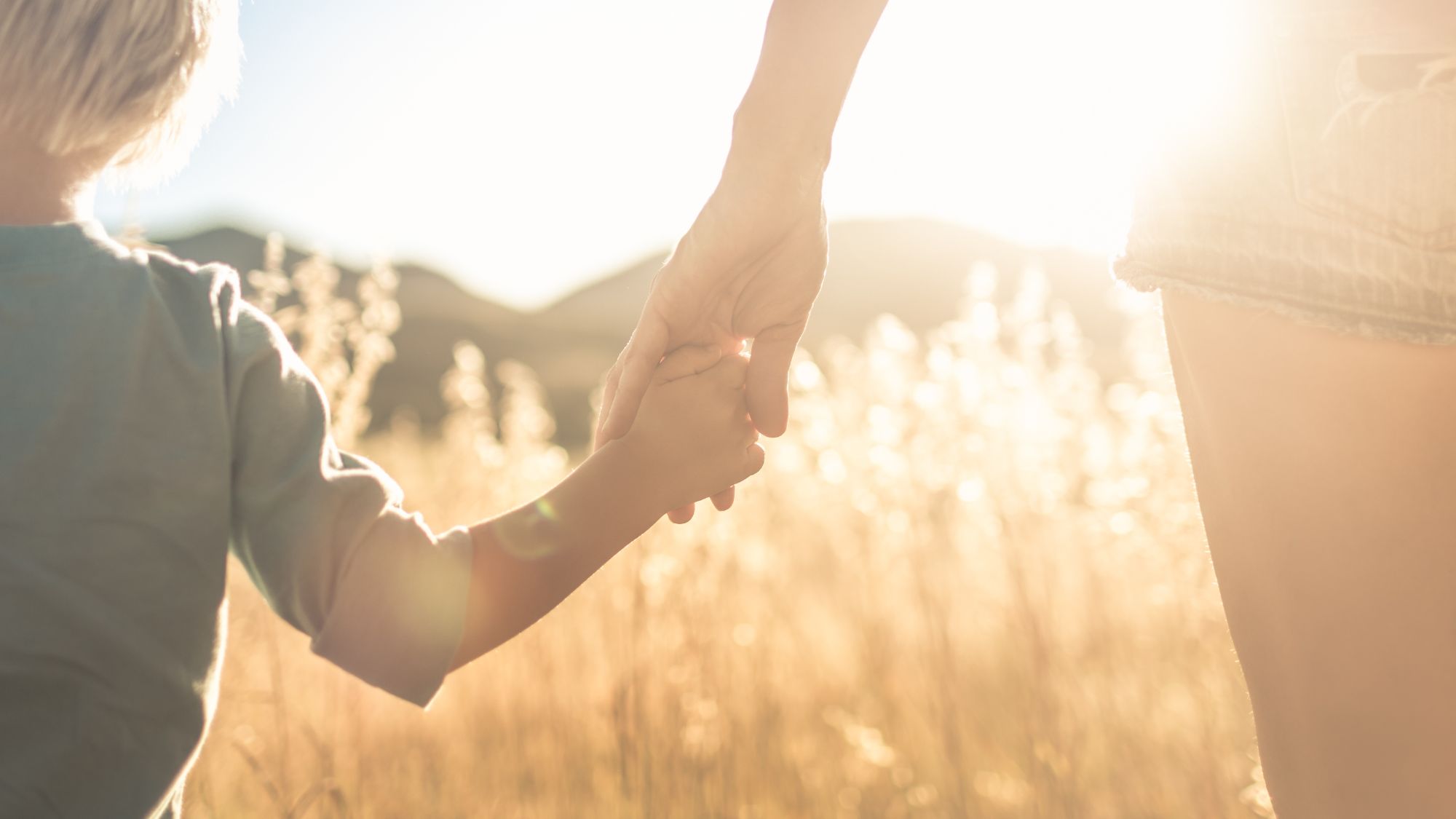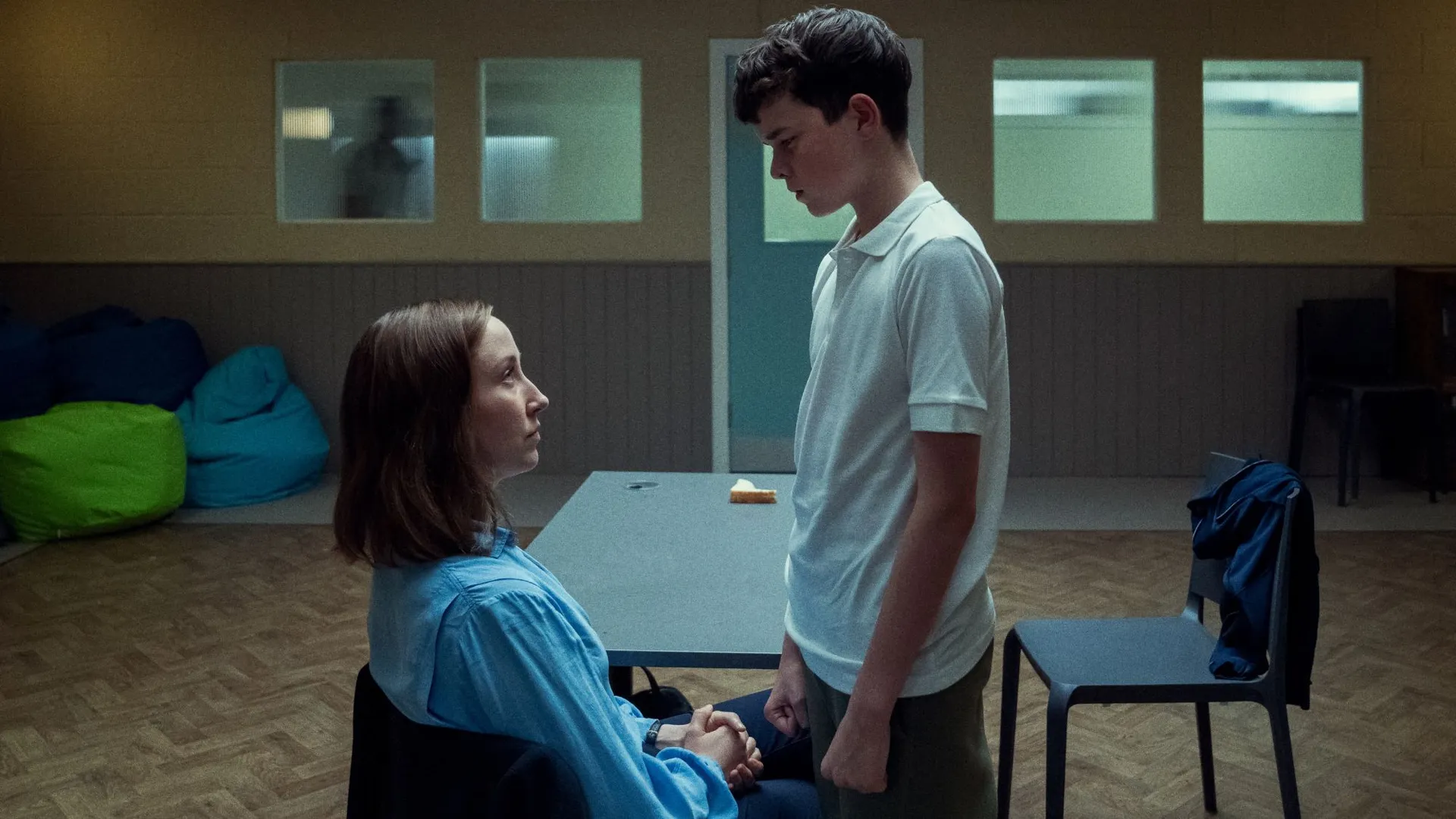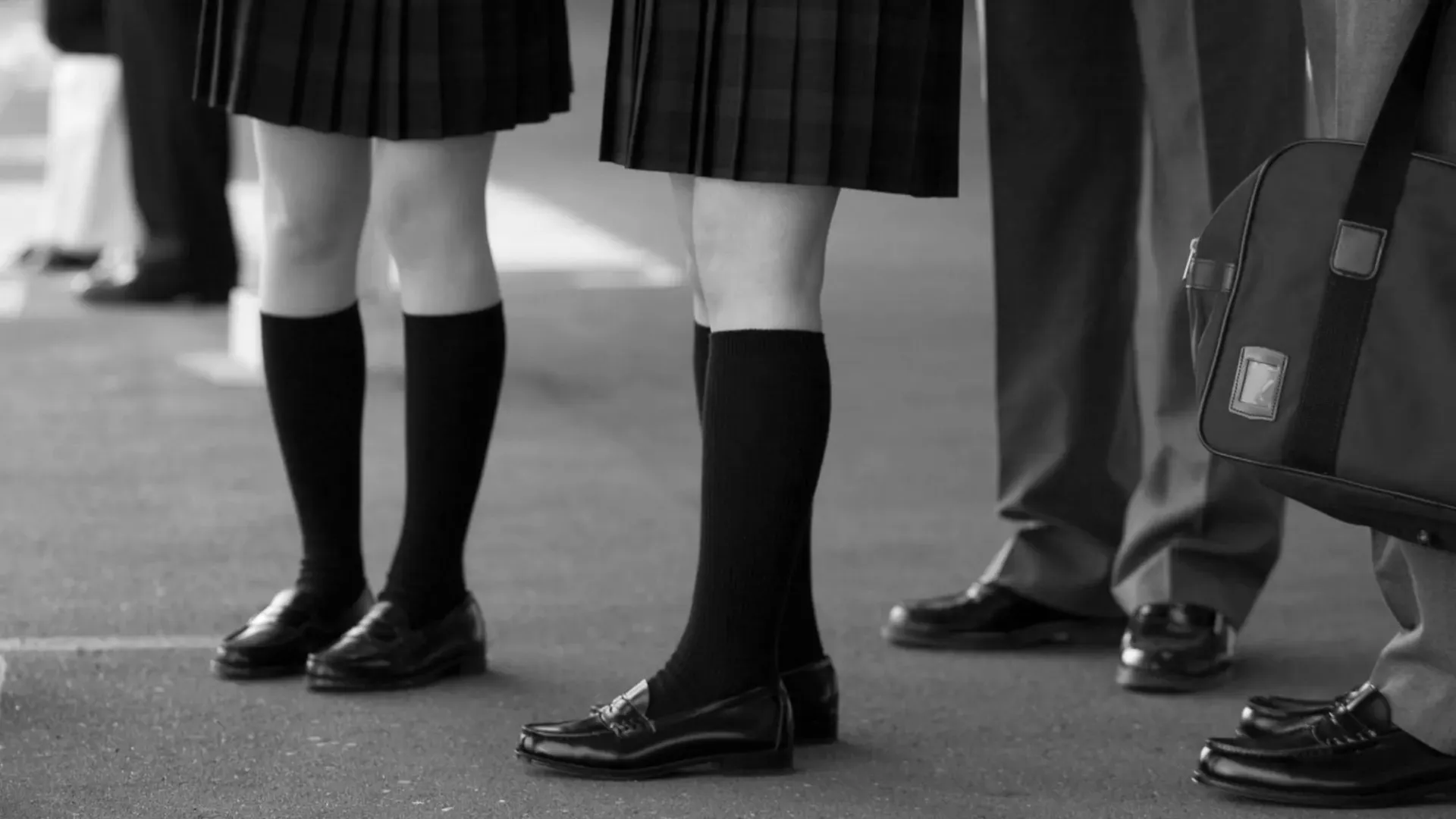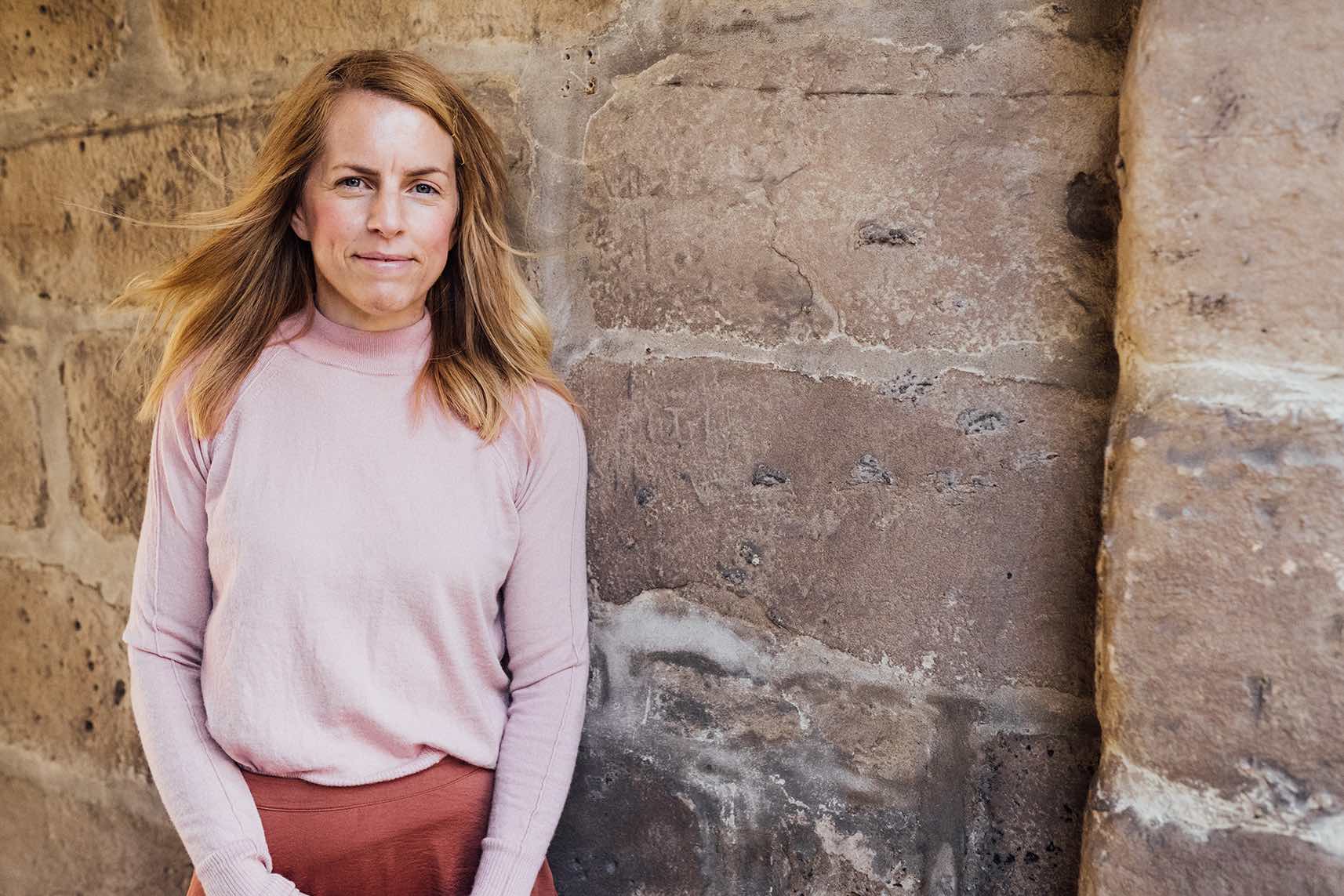How Do We Raise Our Kids in a Time of Misogyny and Intimate Image Abuse?
“We tend to ask more of schools when we perhaps need to ask more of ourselves”


Celebrity news, beauty, fashion advice, and fascinating features, delivered straight to your inbox!
You are now subscribed
Your newsletter sign-up was successful
Parental WhatsApp groups, while mostly a lost-uniform SwapShop, can occasionally be a hotbed of gossip and speculation. A couple of years ago, I assumed the chat around an Employability Skills questionnaire issued only to the year 12 girls was exactly that. When I later saw the questionnaire, which asked girls to mark themselves out of ten for points such as, “Is my blouse buttoned up and my cleavage hidden?” “Do I have on clean and unholy underwear?” “Am I wearing a nice smile?” I assumed instead the document wasn’t hearsay but parody. This was 2023. Surely the only guidance all students needed about dressing for an interview was: have a wash and wear something industry-appropriate.
It turns out that the questionnaire was not a parody. Nor was it, as I’d naively hoped, an ancient document retrieved from the archives to spark conversation about how attitudes towards women in the workplace have changed. What it was, the Head of the time insisted, was advice that “may have appeared sexist.” Italics my own.
I appreciate a leap from questionnaires that may appear sexist to the extremely violent side of misogyny depicted in the Netflix drama Adolescence could be considered a stretch, but, for me, the everyday sexism of the former creates a society in which the latter becomes more possible. My point is, none of these is an isolated incident, rather they all sit on a sliding scale of misogyny that’s increasingly — and scarily — rife in schools.

As a writer, my instinct is to eke out the drama. Stick a gaggle of authors in a room with some wine and poetic license and the tone may verge on hyperbolic. I was hopeful, then, that if I dug a little deeper into the reality of what life’s like in senior school classrooms, it wouldn’t come close to the stories I’d concocted in my head. In a way, I was right; the two are wildly different. Sadly, though, the truth is more disturbing and depressing than fiction.
The thing is, in most fiction, there’s a notable arc. In my novel, Bad Manners, for example, I put 18-year-old Cass in dire situations — a men-only booze-fuelled dinner and a school steeped in misogynistic tradition — then have her discover the means to find her way out of the dark. In my recent conversations with teachers, however, it seems those means — assemblies, presentations, workshops for boys exhibiting misogynistic behaviour — are proving ineffective. One likened it to “swimming upstream hugely and, to a large extent, blindly,” due, in significant part, to adults’ inability to keep on top of what the students are frequently exposed to online. By the time staff are aware of Andrew Tate’s messaging, Tate’s likely no longer as relevant to the teens, and so the school’s counter-messaging is already, to a certain extent, outdated.
That those hours of online content are consumed outside of schools speaks to a bigger problem than in-class education. Teachers, though, have spoken of parental denial: a father who doesn’t believe his son is capable of misogynist language; a mother who cannot imagine her child threatening rape. As parents, we are willingly handing our children over to technology, thereby absenting ourselves from so much of their cultural life. How can we be surprised when our kids’ moral values don’t mirror our own?

Deny as we might, the female staff who, like the female students, are frequently subjected to inappropriate behaviour, noted a definite cultural shift. One told me of a class of boys who had historically respected her teaching which, while authoritative, modelled empathy and kindness. This allowed them a space in which they felt comfortable putting ego and ambition aside and risking being “wrong” in front of their peers. Now, she says, she is “frequently belittled, physically intimidated and literally ignored because [she is] a woman, and this,” she told me, “is by teenage boys and male staff members.”
Celebrity news, beauty, fashion advice, and fascinating features, delivered straight to your inbox!
Interestingly, when I asked a teacher if he felt female staff would consider him and his male colleagues allies, his answer was an immediate yes. But when he later put the same question to a female member of the senior leadership team, her response was somewhat different. I’ve heard of men openly ranking their colleagues according to looks, of head teachers having to insist on the removal of “girlie calendars” from staff workplaces, and of male teachers attempting to start sexualised online conversations with younger female staff.
Obviously, not all male teachers. One I talked with was quick to acknowledge how his privilege made him a “poor witness” and is keen to engage in any way he can. But, as he pointed out, “teaching can be quite isolated. Teachers’ time is utterly regimented… and there is potentially very little time for socialising with colleagues, allowing for lots of blind spots.”
It’s not only social time that’s limited. Teachers are constantly stretched. And yet, when we collectively gasped at Adolescence and our children’s increasing vulnerability to misogynist grooming, we sought a solution in showing the drama in schools. But as Jaimi Shrive and Dr Jessica Taylor of VictimFocus made clear in their open letter to the Government opposing the use of the drama in the classroom, “teachers are not specialists in male violence, trauma, radicalisation or abuse, and they would be expected to handle disclosures, emotional distress, defensive and triggered responses, and controversial discussions following this content.”
The dramatic impact of Adolescence is evident in the number of conversations it provoked. For me though, while excellent, it was missing at least one episode. Where was Katie’s narrative? The empathetic lens focused so astutely on Jamie and his family that the story of his victim was mostly unexplored.
This is perhaps indicative of girls’ experience generally. Even when they dare to speak out, their fears are often ignored. Dick pics, catcalling, cyberbullying, innuendo and threats of sexual assault are a common occurrence. And if, having been subjected to so-called “micro-aggressions” for weeks, months or years, even, a girl “blows”, it’s not unusual for her to be the one punished for loud, sweary and sometimes physically aggressive behaviour.
It's not only girls, though, who are afraid. I’ve heard of boys in lower years avoiding certain areas of schools because they too are fearful. A frequent form of survival is to emulate the older students. As one teacher so perceptively explained, “the bigger boys [are] accidental middlemen for the toxic manosphere.”
When we are scared for our children, we tend to ask more of schools when we perhaps need to ask more of ourselves. As parents and caregivers, yes, but across society more broadly too. It takes a village. But, right now, despite my writer’s penchant for happy endings, I’m afraid our village is screwed.
That said, I find hope in the incredible teachers I spoke with. Maybe it’s not only our children who need to learn from them. “In the thick of pushing and shoving at lunch,’ one told me, “I am very aware of how careless these boys are about my physical safety.” And yet she continues to support and nurture these very children. “I will not be diminished,” she said. And neither, I believe, should we.
Those of us who seek change must make ourselves bigger and more present in our kids’ lives. For many of us, a proposed ban on smartphones for children would come too late, but we can enforce our own restrictions. No smart devices in bedrooms could be a simple start. And let’s not leave the teaching of young people to teachers alone. Public male figures like Gareth Southgate and Jordan Stephens have spoken brilliantly on modern masculinity. More of that, please. More societal engagement with the problem. More listening to young people. And more willingness from parents and caregivers to have these thorny conversations with teens ourselves.

Having shoe-horned the phrase “finding her own self-worth” into every possible English-literature essay from GSCE through to university, it’s no wonder that Shropshire-based author Amy Beashel is now writing books featuring female protagonists who are fiercely attempting to do just that. Her latest novel, Bad Manners, is out now, published by HarperNorth.